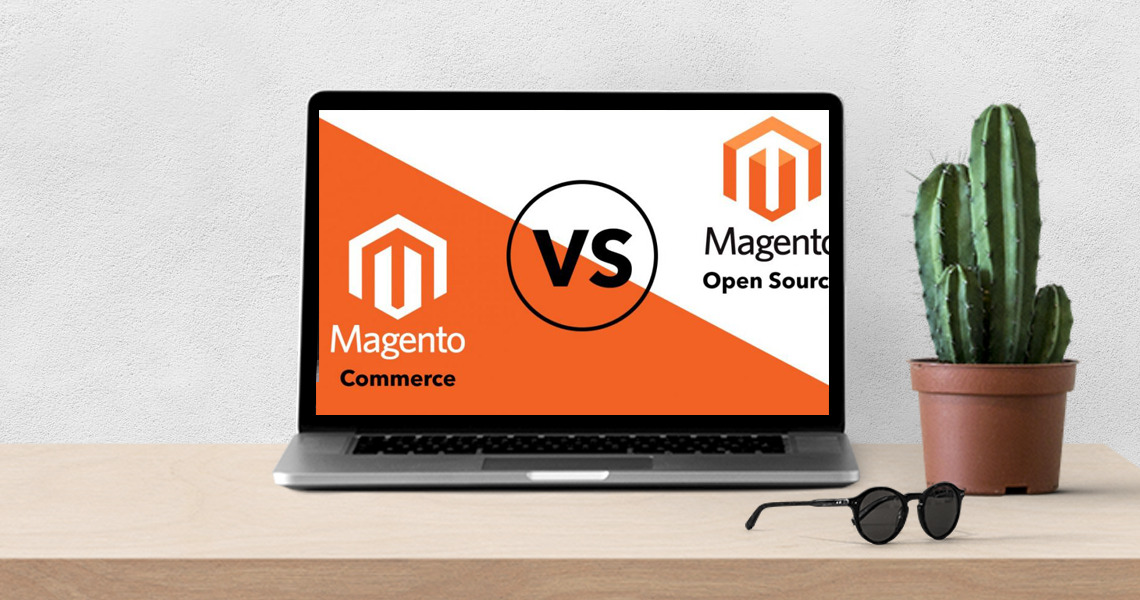Magento Open Source vs Magento Commerce edition
Magento offers two main editions: Magento Open Source (formerly known as Community Edition) and Magento Commerce (formerly known as Enterprise Edition). These editions cater to different business needs, offering varying features, scalability, and support levels. Let’s compare Magento Open Source and Magento Commerce:
1. Features and Functionality:
– Magento Open Source: This is a free, open-source platform that provides fundamental e-commerce capabilities. It includes features for catalog management, product browsing, checkout, customer accounts, and basic marketing tools. However, some advanced features like Elasticsearch, Content Staging, and Page Builder are not included in the Open Source edition.
– Magento Commerce: Magento Commerce is a premium, paid edition that comes with additional features and capabilities beyond what’s offered in Magento Open Source. It includes advanced features like Elasticsearch for improved search, advanced marketing and promotion tools, content staging, and the powerful Page Builder for visual content creation. Additionally, Commerce offers B2B features, such as company accounts, requisition lists, and negotiated pricing.
2. Performance and Scalability:
– Magento Open Source: While Magento Open Source can handle small to medium-sized online stores, it may require additional customization and optimization to achieve optimal performance for larger stores with high traffic.
– Magento Commerce: Magento Commerce is designed to provide enhanced performance and scalability. It includes features like Full Page Cache, database optimizations, and a cloud deployment option that can handle high levels of traffic and ensure a smoother shopping experience.
3. Support and SLAs:
– Magento Open Source: Support for Magento Open Source is community-driven. While you can seek assistance from the Magento community and forums, official technical support from Adobe (the parent company of Magento) is not included with the Open Source edition.
– Magento Commerce: Magento Commerce comes with official technical support from Adobe, providing access to Magento’s support team for assistance with issues, troubleshooting, and bug fixes. It also offers service-level agreements (SLAs) to ensure timely responses and resolutions.
4. Pricing:
– Magento Open Source: Magento Open Source is free to use and download. However, you need to consider costs related to hosting, development, and any third-party extensions you might use.
– Magento Commerce: Magento Commerce is a paid edition, and its pricing is typically based on the size of your business and your specific requirements. The cost includes access to premium features, support, and additional services.
5. Target Audience:
– Magento Open Source: It is suitable for small to medium-sized businesses looking for a cost-effective way to set up an e-commerce store with essential features.
– Magento Commerce:Magento Commerce is designed for businesses that require advanced features, scalability, performance, and official technical support. It’s ideal for larger businesses and enterprises.
WHO NEEDS MAGENTO COMMERCE?
For the majority of online store owners, there is not much of a difference between Magento Community Edition and Enterprise Edition except for the cost. While the cost is an important factor, yet there is a need to think about the value of the Enterprise for the project and not just about the cost of it. Enterprise Edition might prevent potential security and scalability challenges that are going to emerge in larger companies. As a result, many worldwide known brands choose to use Enterprise Edition. Among those companies that choose Enterprise Edition, there is Burger King, Canon Australia, Easy Spirit women’s footwear brand, Marimekkousa, and Old Glory is a music, sports, and entertainment online store. All these companies have a lot of processes to maintain and scale, and therefore they need to make sure the online store works smoothly with millions of product varieties and thousands of orders at the same time.
WHO NEEDS MAGENTO OPEN SOURCE EDITION?
Many famous brands initially were launched on Magento Community Edition. For example, such a company as Kitchen Cabinets is among the companies that were started on the basis of Magento Community Edition. As soon as the company grew in size, the company migrated to Magento Commerce.
Another successful company that started on Community Edition is DC Thomson Shop who sells magazine subscriptions, gifts, collectibles, and puzzles. In 2017, the company grew rapidly and needed to migrate Magento Enterprise 2 because they required a more up-to-date solution for their business. Therefore, even if you start with Magento Community Edition, there is always a chance you will need to switch to the Enterprise version in later years
Ultimately, the choice between Magento Open Source and Magento Commerce depends on your business’s size, needs, budget, and desired level of support and features. It’s recommended to evaluate your specific requirements and consult with experts to determine which edition is the best fit for your e-commerce project.
Error: Contact form not found.

